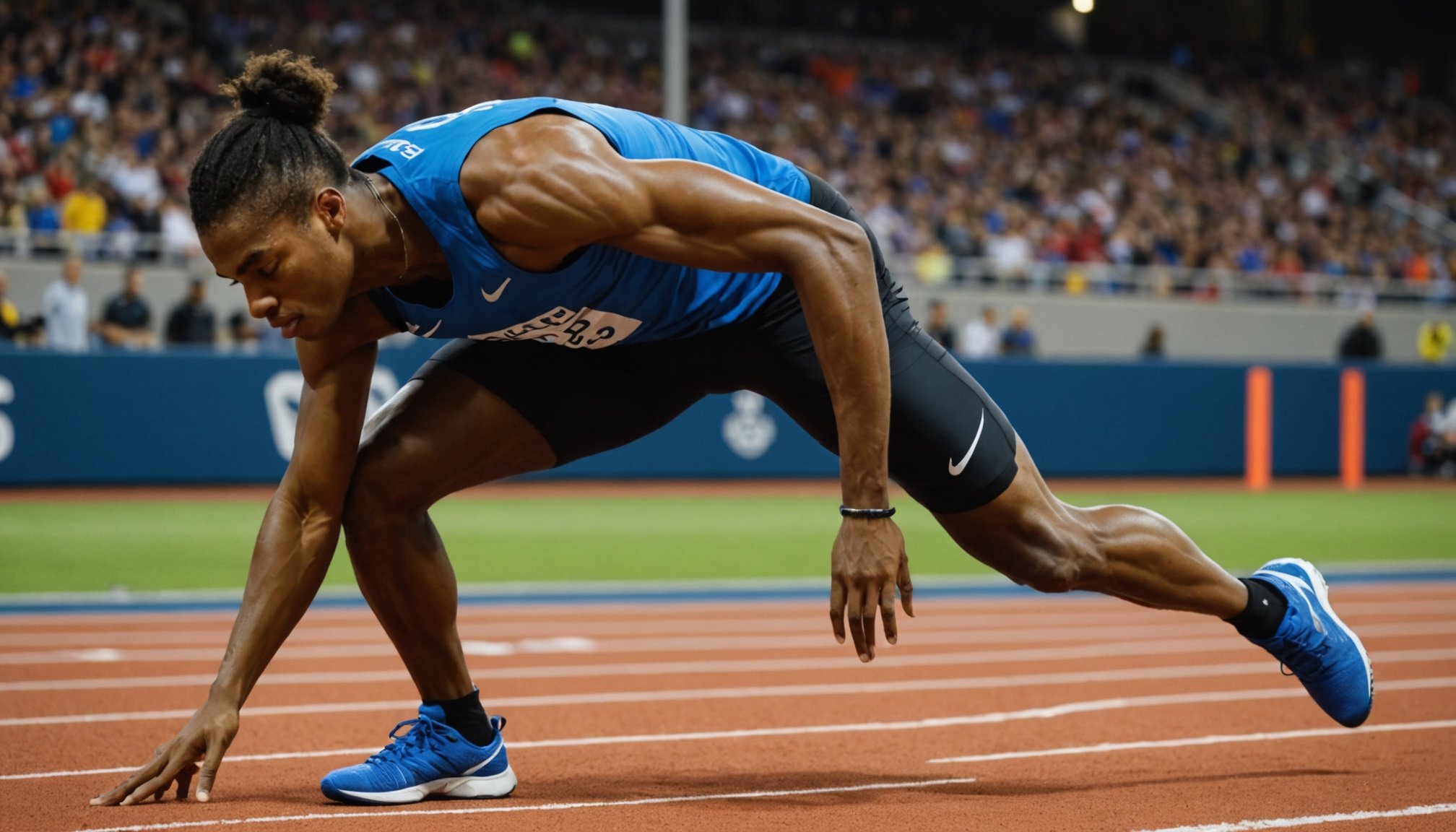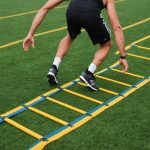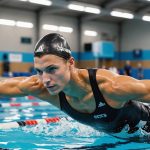Sleep optimization significantly impacts athletic performance. For track and field athletes, mastering this aspect means unlocking potential and achieving peak results. Science supports the idea that quality sleep enhances recovery, focus, and overall performance. This unique perspective helps athletes understand that seemingly small adjustments to their sleep routines can yield remarkable improvements on the track. By prioritizing sleep, competitors can elevate their game and maintain a competitive edge, effectively transforming how they approach their training and recovery practices.
The Importance of Sleep for Athletic Performance
Sleep is a crucial component of athletic success, playing a vital role in both recovery and performance enhancement. During sleep, the body engages in essential repair processes, including muscle recovery and the synthesis of proteins, which are critical for athletes. Quality sleep is linked to improved reaction times, accuracy, and overall performance.
Topic to read : Unlocking Peak Performance: Leveraging Biofeedback Techniques for Elite Archers
Scientific studies consistently demonstrate the connection between sleep quality and athletic success. Research has shown that athletes who prioritise sleep experience improved endurance, strength, and cognitive function. A study published in the Journal of Sports Sciences found that extended sleep duration led to significant improvements in sprint times and shooting accuracy among basketball players.
Understanding sleep cycles is also key to optimising training. Sleep consists of various stages, including REM (Rapid Eye Movement) and non-REM sleep. Each stage plays a distinct role in physical and mental recovery. REM sleep, for instance, is associated with memory consolidation and emotional regulation, while non-REM sleep is vital for tissue growth and repair.
Have you seen this : Unlocking Peak Performance: A Cyclist”s Guide to Smart Carbohydrate Intake
Athletes should aim for 7-9 hours of quality sleep per night to maximise their performance potential. By prioritising sleep, athletes can enhance their recovery, sharpen their skills, and achieve peak performance levels.
Evidence-Based Sleep Hygiene Practices
To enhance athletic performance, adopting effective sleep hygiene techniques is essential. Creating a sleep-conducive environment can significantly impact the quality of rest. This includes maintaining a dark, cool, and quiet bedroom, which helps signal the body that it's time to sleep. Investing in comfortable bedding and minimising noise with earplugs or white noise machines can further enhance sleep quality.
A consistent sleep schedule is equally important. Going to bed and waking up at the same time every day, even on weekends, helps regulate the body's internal clock. This consistency fosters better sleep patterns and ensures the body is well-rested, ready to face training or competitions.
Techniques for winding down before bedtime are crucial for preparing the mind and body for sleep. Engaging in relaxing activities such as reading, gentle stretching, or meditation can help reduce stress and anxiety. Limiting screen time before bed is also recommended, as the blue light emitted by devices can interfere with melatonin production, a hormone that regulates sleep. By implementing these sleep hygiene techniques, athletes can optimise their sleep quality, enhancing their physical and mental recovery, ultimately boosting performance.
Personalized Sleep Plans for Track and Field Athletes
Creating customized sleep strategies is essential for track and field athletes aiming to optimise their performance. Each athlete's sleep needs can vary significantly, and understanding these differences is the first step in crafting an effective sleep plan.
Assessing Individual Sleep Needs
To develop a personalised sleep plan, athletes should start by assessing their unique sleep requirements. Factors like age, training intensity, and personal health can influence how much sleep an individual needs. Athletes can use sleep journals or tracking devices to monitor their sleep patterns and identify any disruptions or deficiencies.
Tailoring Sleep Schedules Around Training
Once individual needs are understood, sleep schedules can be tailored to complement training routines. Aligning sleep with training times ensures athletes are rested and ready for peak performance. For instance, if training sessions are scheduled early in the morning, going to bed earlier can help in achieving the necessary rest.
Integrating Naps into Training Routines
Incorporating naps into daily routines is another effective strategy. Short naps, ideally lasting 20-30 minutes, can help alleviate sleep debt and boost alertness. These naps should be strategically placed, avoiding late afternoon to prevent interference with nighttime sleep. By integrating these personalised strategies, track and field athletes can enhance their sleep quality and, consequently, their athletic performance.
Expert Insights on Sleep Optimisation
Gaining insights from sleep optimisation experts can significantly enhance athletic performance. Interviews with sports scientists and sleep specialists reveal the importance of tailoring sleep practices to individual needs. They emphasise that understanding one's unique sleep requirements is crucial for maximising recovery and performance.
Recommendations from Elite Athletes
Elite athletes often share their sleep practices, highlighting the significance of consistency and environment. Many recommend maintaining a regular sleep schedule, even during off-seasons, to keep the body in rhythm. Creating a sleep-conducive environment, as advised by experts, involves ensuring a dark, cool, and quiet bedroom setting.
Debunking Common Myths
Common myths about sleep in sports can mislead athletes. One prevalent misconception is that more sleep always equals better performance. However, sleep optimisation experts clarify that quality matters more than quantity. Another myth is that naps can fully substitute for night-time sleep. While naps can boost alertness, they should complement, not replace, a good night's rest. Understanding these nuances helps athletes make informed decisions about their sleep strategies. By integrating expert insights, athletes can refine their sleep practices, leading to enhanced performance and overall well-being.
The Science Behind Sleep and Recovery
Understanding the science of sleep recovery is crucial for athletes aiming to optimise performance. Sleep significantly impacts muscle recovery and injury prevention. During deep sleep stages, the body releases growth hormone, essential for muscle repair and growth. This process helps reduce the risk of injuries by strengthening muscle fibres and improving resilience.
REM sleep plays a vital role in athletic recovery, supporting cognitive functions and emotional well-being. It aids in processing information and consolidating memories, which is particularly beneficial for athletes learning new skills or strategies. The combination of REM and deep sleep stages ensures comprehensive recovery, both physically and mentally.
Case studies highlight sleep's profound impact on recovery times. For instance, a study involving professional football players revealed that those who prioritised sleep experienced faster recovery from injuries compared to those with irregular sleep patterns. This evidence underscores the importance of quality sleep in enhancing recovery and performance. Athletes who integrate sleep recovery science into their routines can achieve better results and maintain peak physical condition.
Actionable Tips for Improving Sleep Quality
For athletes, adopting effective sleep improvement tips can significantly enhance performance. Nutrition plays a pivotal role in sleep quality. Consuming a balanced diet rich in vitamins and minerals supports the body's natural sleep processes. Avoiding caffeine and heavy meals close to bedtime can prevent sleep disruptions, ensuring a restful night.
The effects of technology, particularly blue light, on sleep are profound. Devices like smartphones and tablets emit blue light, which can interfere with melatonin production, a hormone essential for sleep regulation. To mitigate these effects, it's advisable to limit screen time at least an hour before bed. Using blue light filters or glasses can also help reduce exposure.
Incorporating mindfulness and relaxation techniques into your routine can further improve sleep quality. Practices such as deep breathing, progressive muscle relaxation, or meditation can calm the mind and body, preparing you for sleep. These techniques help reduce stress and anxiety, common barriers to falling asleep.
By integrating these sleep improvement tips into daily habits, athletes can optimise their rest, enhancing recovery and overall performance.
Case Studies of Elite Athletes and Sleep
Exploring athlete sleep case studies provides valuable insights into the impact of rest on performance. Many elite athletes attribute their success to prioritising sleep, incorporating it as a crucial element of their training regimen.
Profiles of Athletes Who Prioritise Sleep
High-profile athletes, like tennis legend Roger Federer and basketball star LeBron James, have publicly emphasised the importance of sleep in their routines. Federer reportedly sleeps around 12 hours a day, while James aims for at least 8-10 hours, highlighting their commitment to rest as a performance enhancer.
Analysis of Sleep Routines and Performance Outcomes
These athletes' sleep routines are meticulously planned. Federer's extended sleep allows for optimal muscle recovery and mental sharpness, while James's consistent schedule supports his endurance and focus. Studies indicate that such sleep habits contribute to their sustained performance and reduced injury risk.
Lessons Learned from Their Experiences
From these athlete sleep case studies, the lesson is clear: prioritising sleep can lead to significant performance gains. Athletes can learn to tailor their sleep schedules, ensuring adequate rest for recovery and peak performance. By adopting similar sleep routines, athletes at all levels can enhance their training outcomes and overall well-being.
Resources for Further Research
Delving deeper into the world of sleep research resources can provide athletes with valuable insights to enhance their performance. A plethora of recommended books and articles explore the intricate relationship between sleep and athletic success. Titles such as "Why We Sleep" by Matthew Walker and "The Sleep Revolution" by Arianna Huffington offer comprehensive overviews of sleep science.
For those interested in scientific studies, numerous online databases and journals publish ongoing research on sleep and performance. The Journal of Clinical Sleep Medicine and Sleep Health are excellent starting points for accessing peer-reviewed articles. These resources can help athletes stay informed about the latest findings in sleep science.
To track and analyse sleep patterns, athletes can utilise various tools and apps. Wearable technology, like the Fitbit or WHOOP, provides detailed sleep metrics, helping athletes understand their sleep cycles. Apps such as Sleep Cycle and SleepScore offer insights into sleep quality and suggest improvements. By leveraging these sleep research resources, athletes can gain a deeper understanding of their sleep habits and make informed decisions to optimise their rest and performance.











